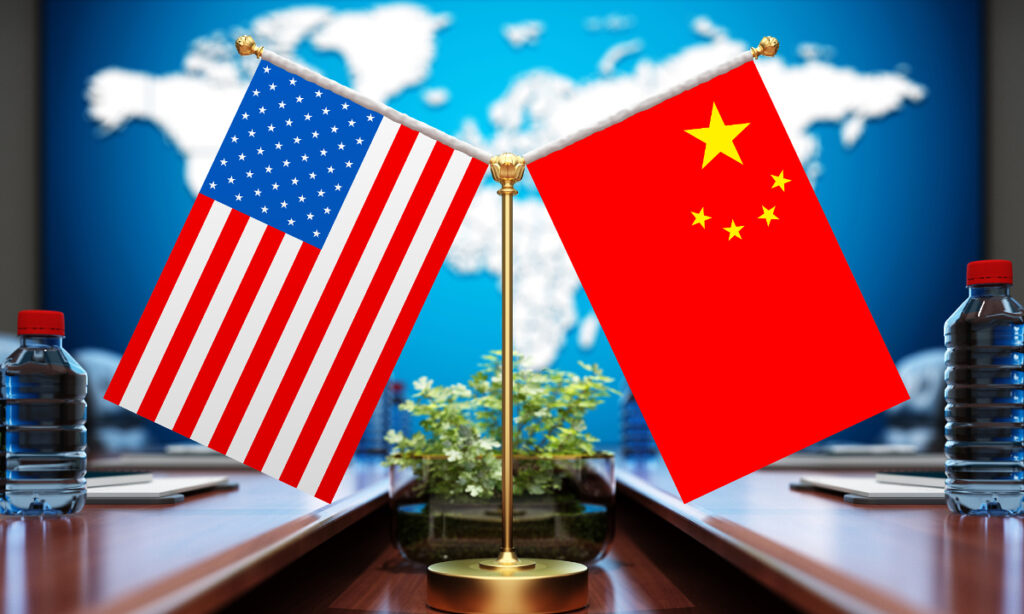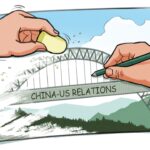From Monday to Tuesday, the China-US economic working group held a meeting in Beijing. This is the third meeting of the working group since its establishment in September last year, the first face-to-face meeting in Beijing, and the first meeting this year. The content of the talks between the two sides mainly involved the macroeconomic situation and policies of the two countries, G20 financial cooperation, debt of developing countries, industrial policies, etc. Judging from the briefings after the meeting, the overall exchange between the two parties was good and was “in-depth, candid, pragmatic and constructive.” Regarding the issues that trouble China-US economic and trade relations, including the US’ increased tariffs on China, two-way investment restrictions, sanctions and suppression of Chinese companies, etc., China has expressed concerns to the US, and the two sides have agreed to continue maintaining communication.
In September last year, in order to implement the important consensus reached by the leaders of China and the US at their meeting in Bali, the two countries agreed to establish two working groups in the economic field, an economic working group and a financial working group. Since then, dialogues between China and the US in various fields have been carried out one after another, and the talks has been relatively smooth. In particular, the economic working group mainly discusses major macroeconomic issues such as finance, economic development and structural adjustment between the two countries, which should have been the area where the two countries have the most convergence of interests and the widest potential for cooperation. The actual effect also proves this. Through three dialogues, China and the US had in-depth discussions on some macroeconomic issues. The two sides established trust to a certain extent and achieved consensus on some major issues, which also laid a good foundation for subsequent dialogues.
In the Chinese side’s release, the term “candid” was mentioned; and US media, citing officials from the US Treasury Department, also emphasized the word “frank” multiple times. Meetings between China and the US indeed need to be grounded in such a realistic and rational attitude. There is no need to avoid contradictions and problems; the franker the attitude, the more conducive it is to the establishment of mutual trust.
Additionally, we hope that the US side not only holds a frank attitude toward China but also deals frankly with the history and reality of both countries. We have observed that many US high-level officials, including Jake Sullivan, Antony Blinken, and Janet Yellen, among others, have shown certain positive changes in their recent statements compared to their positions three years ago. This includes acknowledging that “the US and China are economically interdependent” and emphasizing the importance of “stabilizing bilateral relations” – all of which align with China’s longstanding stance. If there are factors driving these changes, the reality of China-US relations and the impact of China-US dialogue must undoubtedly play a crucial role.
Certainly, although the first three dialogues of the China-US economic working group went relatively smoothly, this does not necessarily guarantee that future dialogues will also proceed smoothly. On the one hand, some relatively easier issues have been discussed, and in the next phase, it is inevitable to address areas where both China and the US have limited compromise space and significant differences in interests and perceptions. On the other hand, despite the overall positive momentum of China-US dialogue since the beginning of this year, 2024 is the US “presidential election year” and based on past experience, domestic political agendas in the US often create certain disturbances in external relations at this time. How to counteract these disturbances as much as possible, stabilize the overall situation of China-US relations, the outside world has both doubts and expectations, and the challenge is primarily on the US side.
The path of China-US relations, from a phase of interrupted dialogues to the current ongoing recovery, has been intricate and challenging, which is agreed by both sides. Since both sides have navigated through such a significant journey and are now willing to sit down for dialogue, it should not be confined to mere engagement for the sake of engagement. The dialogue must play a constructive role in shaping the future development of China-US relations.
In terms of economic and trade relations, issues such as distorted high tariffs on Chinese goods, investment restrictions, and the blockade and containment of Chinese high-tech cannot be easily justifiable under the excuses of “national security” and the assertion of “derisking rather than decoupling.” These concerns are not only those of the Chinese side but are shared by American businesses and other members of the international community. Chinese Minister of Commerce Wang Wentao mentioned that some US companies have said the greatest risk, if one were to “mitigate risks” now, lies in the politicization of economic and trade issues in China-US relations, with no other comparable risk. This viewpoint aligns with the fundamental results of many investigations into businesses from both China and the US.
At present, both China and the US are willing to stabilize relations between the two countries. From the US side, “stability” cannot be fundamentally guaranteed by only conducting some limited-scale dialogue and adjustments to specific statements and not taking advantage of the trends and opportunities provided by the improvement of bilateral relations to solve some structural problems. The outcome of the dialogue between the China-US economic working group should pave the way for the overall improvement of the two countries at the macro and micro levels. This is its deeper significance.
(Global Times)




